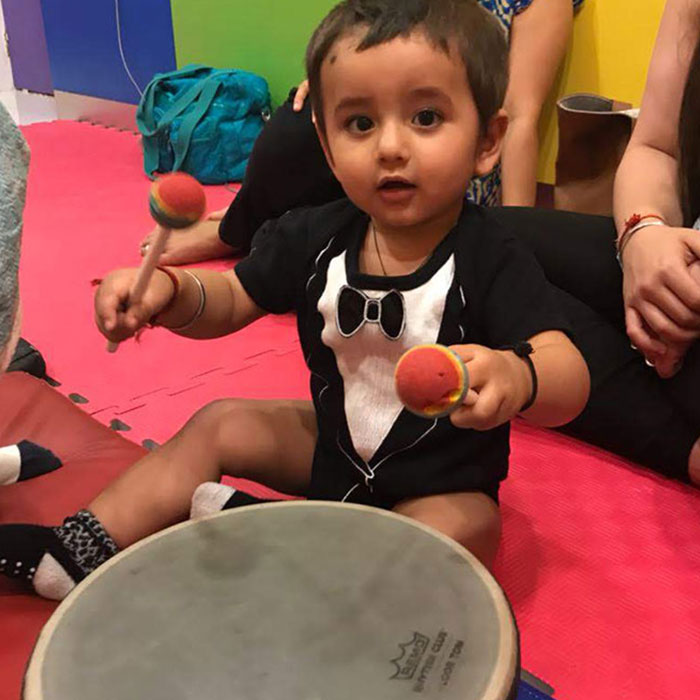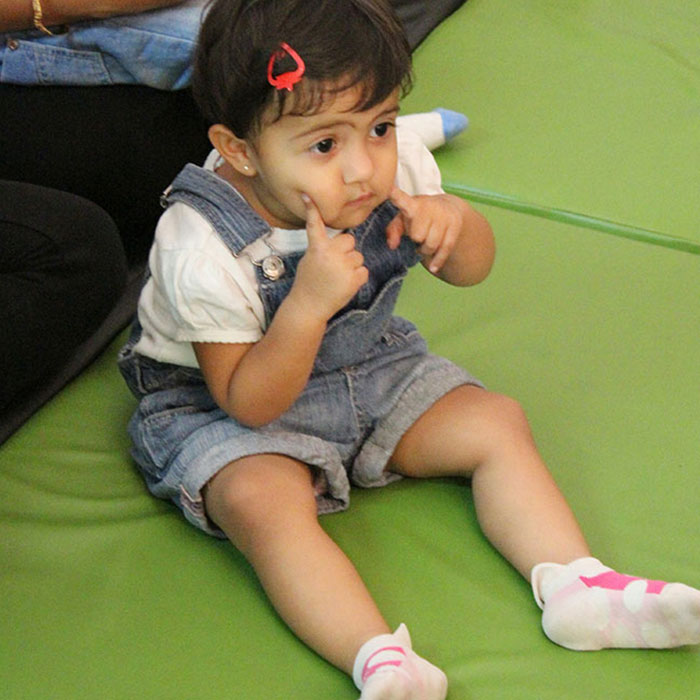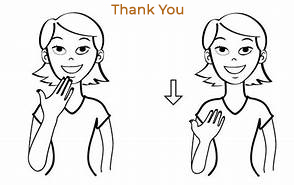Stability
is the ability to keep one part of the body still while another part moves.
Bilateral Coordination
is the efficient use of both hands during activities. One hand will manipulate while the other is the ‘helping hand.
Sensation
is knowing where your hands, arms, and fingers are, and how they are moving. Once the building blocks are established, your child will use small, accurate, and precise movements to open containers, pick up tiny objects, stack blocks, and many other skills.
Activities at Rhythm N Rhyme are geared to typically help our Bugs attain and master fine motor skills.
Gross Motor Skills
We all know gross motor movement is important for development, but why is that?
When kids move to music, they are getting so much more than just exercise. They are also developing their coordination, balance, concentration and cognitive abilities.
Benefits for the Brain
By practicing coordinated movement to music, they will develop parts of the brain that will help them to speak, read, write and play instruments. But the best part is that these activities also bring such a great deal of enjoyment!
Developing the upper body can be done is also done with basic gymnastic skills which we incorporate in music class at Rhythm n Rhyme. Our Bunnies learn forward rolls, Monkey jumps, Donkey kicks that help develop upper body strength.





